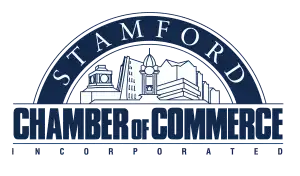Connecticut Juvenile Crime Lawyer
If you or your child is 17 years of age or younger and are accused of committing a state, federal or municipal crime in Fairfield County, Connecticut, then you or your child are likely to be arrested and summoned to appear before the Juvenile Courts in the Stamford or Bridgeport Superior Courts.
The Connecticut juvenile court system is designed to both adjudicate criminal cases involving children, while protecting your child’s privacy rights, as well as those of any alleged victims. The juvenile system can often be more lenient than the adult courts which prosecute similar crimes and charges. It can, however, also be a more onerous process for child defendants and their families, as there is often much more supervision, probation, monitoring and restrictions involved. A heavy-handed court punishment can sometimes lead to a child being unnecessarily bogged down in a system against their wishes. It is therefore advisable to consider hiring a top criminal attorney prior to appearing before the Connecticut Juvenile Courts. Our Connecticut juvenile crime lawyer could help you and your family prepare for the court process and work hard to protect your child’s freedom.
What Happens During a Juvenile Arrest?
If your son or daughter 17 years old or younger, and is suspected of committing a juvenile offense in Connecticut, then it is likely that a police officer or detective would want to interview your child in the course of their investigation. Many police departments in the Stamford, Greenwich, New Canaan, Darien, Westport and Norwalk areas have divisions within their departments that specialize in juvenile investigations. These divisions—sometimes called “Youth Divisions” or “Special Victims Units”—receive specialized training in working with children and their families.
No matter who contacts you from the police, however, understand this important fact: parents have the virtually unconditional right to be present with their child during all police interactions, questioning, and interrogations. Therefore it is critical that if your child is suspected of committing a crime or a juvenile offense, then you should advise law enforcement that you would like to be present for all interactions with your child. Additionally, prior to speaking with the police, this would be another ripe opportunity for you to consult an experienced Connecticut attorney to assist you in dealing with law enforcement, as anything you or your child says to the police can be used in a juvenile criminal prosecution against your child.
All juvenile court cases are strictly confidential. The courtroom is closed to the public. The court records and police reports are sealed and are not available for public review in either the Clerk’s office or otherwise. Further, almost all of the juvenile cases handled by our firm do not result in any criminal convictions and allow the children we represent to exit the process without any kind of criminal conviction record whatsoever.
What Happens Between Bond and Juvenile Detention?
The arrest process in the juvenile court system is very different from the adult process. There are no bonds or bail amounts set by Connecticut police departments. Either the child is released to the parents on a promise to appear in court, or the child is detained by the police and brought to a detention center until the arraignment, which is held on the next business day. For juveniles arrested in Connecticut, they will be summoned to appear for their arraignment in either the Stamford or Bridgeport juvenile courts.
Is There are Difference Between Judicial and Non-Judicial Disposition?
Prior to your child’s arraignment, all juvenile cases are reviewed by court personnel to determine the specific prosecution track. There are two options here: “judicial” versus a “non-judicial” disposition. Less serious juvenile offenses are designated as “non-judicial” and are removed from the courtroom process and turned over to a juvenile probation officer who will work with your child and family, monitor the case, and order an appropriate punishment such as community service, counseling, drug testing and academic deliverables (i.e. no unexcused absences, good grades, etc.). “Judicial” designations of a juvenile criminal case arise in the following circumstances:
- When the charges against your child are more serious in nature;
- When the child has a prior record of juvenile charges;
- When felony charges are involved;
- When charges involve the sale or possession of certain drugs, and firearms; and
- When the child is not compliant with the Probation Officer’s recommendations in a non-judicial disposition.
As part of any judicial juvenile criminal case, a Superior Court judge presides over the case, and the child’s Connecticut defense attorney and the prosecutor enter into plea bargain negotiations. If an agreement cannot be reached, then the matter proceeds to trial.
Can My Child’s Case Be Transferred to Adult Court?
A key concern for many of our juvenile clients and their families is whether their child’s case can be transferred to adult court, which obviously raises the stakes for the child on several levels. First, the penalties and punishments for convictions are much more severe and include jail time, adult probation, and hefty fines, all of which would now be in play. Second, and just as important, once a case is transferred to adult court, all confidentiality of the case is lifted and your child’s identity and charges become part of the public record.
Charges for Class A and Class B felonies are automatically transferred to adult court. The prosecutor also has the power to request the transfer of other charges to adult court. However, there are legal mechanisms we can invoke to have the case transferred back to juvenile court. A priority of the Connecticut lawyers at Mark Sherman Law is to keep your child’s case in juvenile court at all costs. There are also scenarios where we have successfully requested that cases that have been transferred to adult court be remanded back to juvenile court.
Are There Any Serious Juvenile Offenses?
Finally, to address the more severe juvenile court cases, the Connecticut legislature has listed about 50 criminal charges that are considered “Serious Juvenile Offenses” or “SJOs” which are eligible for transfer to the adult court system. If your child is charged with an SJO, then we recommend that you call one of our juvenile crime lawyers in Connecticut right away to discuss how we can work with you to try and keep your case in the juvenile court system and fight these charges.
What Is Juvenile Probation?
Whether a juvenile case goes “judicial” or “non-judicial”, it usually gets transferred at some point during the case to a probation officer who is assigned to the case. Our Connecticut attorneys often work closely with these officers to ensure that our juvenile clients are compliant with their probation conditions, and we often are successful in advocating for the early termination of probation. This happens frequently, especially in cases where are juvenile clients are thriving in their family and academic settings.
Contact a Connecticut Juvenile Crime Attorney Today
The juvenile court process is very different from the adult court system. It’s complicated and can be overwhelming and confusing. So if you or your child has been charged with a crime or is summoned to appear in court, call an experienced Connecticut juvenile crime lawyer at Mark Sherman Law to learn how we can help you.












